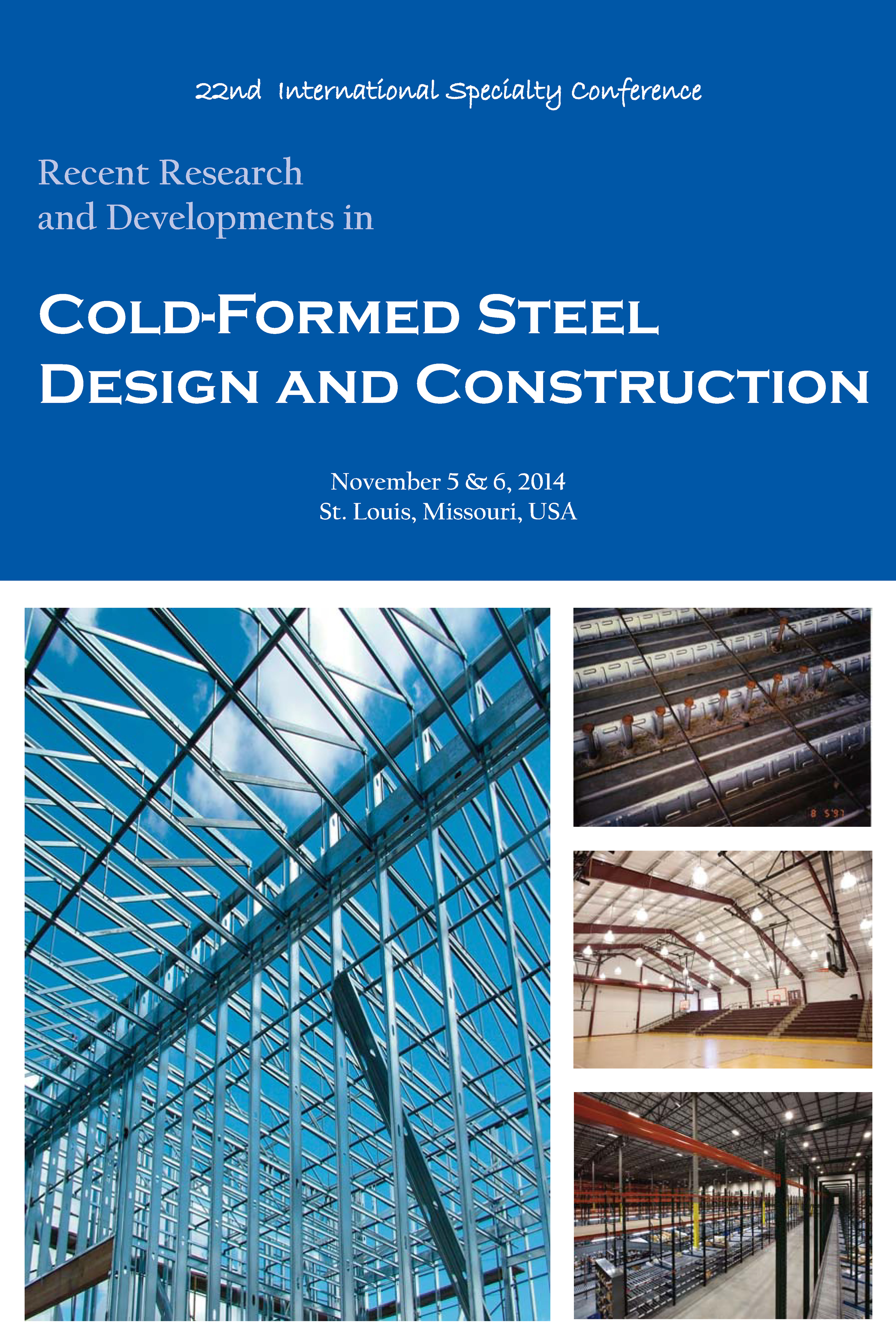Session Dates
05 Nov 2014
Abstract
An experimental investigation of cold-formed lean duplex stainless steel members in combined compression and minor axis bending is performed. The test specimens were cold-rolled from flat strips of lean duplex stainless steel grade EN 1.4162 into two rectangular hollow sections. Different eccentricities were applied to the rectangular hollow sections, so that a beam-column interaction curve for each series of test can be obtained. Initial overall geometric imperfections of the members were measured prior to testing. The ultimate loads and the failure modes of each specimen were obtained. Failure modes include flexural buckling as well as interaction of local and flexural buckling were observed from the test specimens. The test strengths were compared with the design strengths predicted by the American, Australian/New Zealand and European specifications for stainless steel structures. It should be noted that these specifications do not cover the material of lean duplex stainless steel. Generally, the specifications are capable of predicting the beam-column strengths of the lean duplex stainless steel test specimens.
Department(s)
Civil, Architectural and Environmental Engineering
Research Center/Lab(s)
Wei-Wen Yu Center for Cold-Formed Steel Structures
Meeting Name
22nd International Specialty Conference on Cold-Formed Steel Structures
Publisher
Missouri University of Science and Technology
Document Version
Final Version
Rights
© 2014 Missouri University of Science and Technology, All rights reserved.
Document Type
Article - Conference proceedings
File Type
text
Language
English
Recommended Citation
Huang, Yuner and Young, Ben, "Cold-Formed Lean Duplex Stainless Steel Rectangular Hollow Sections in Combined Compression and Bending" (2014). CCFSS Proceedings of International Specialty Conference on Cold-Formed Steel Structures (1971 - 2018). 2.
https://scholarsmine.mst.edu/isccss/22iccfss/session04/2
Cold-Formed Lean Duplex Stainless Steel Rectangular Hollow Sections in Combined Compression and Bending
An experimental investigation of cold-formed lean duplex stainless steel members in combined compression and minor axis bending is performed. The test specimens were cold-rolled from flat strips of lean duplex stainless steel grade EN 1.4162 into two rectangular hollow sections. Different eccentricities were applied to the rectangular hollow sections, so that a beam-column interaction curve for each series of test can be obtained. Initial overall geometric imperfections of the members were measured prior to testing. The ultimate loads and the failure modes of each specimen were obtained. Failure modes include flexural buckling as well as interaction of local and flexural buckling were observed from the test specimens. The test strengths were compared with the design strengths predicted by the American, Australian/New Zealand and European specifications for stainless steel structures. It should be noted that these specifications do not cover the material of lean duplex stainless steel. Generally, the specifications are capable of predicting the beam-column strengths of the lean duplex stainless steel test specimens.



